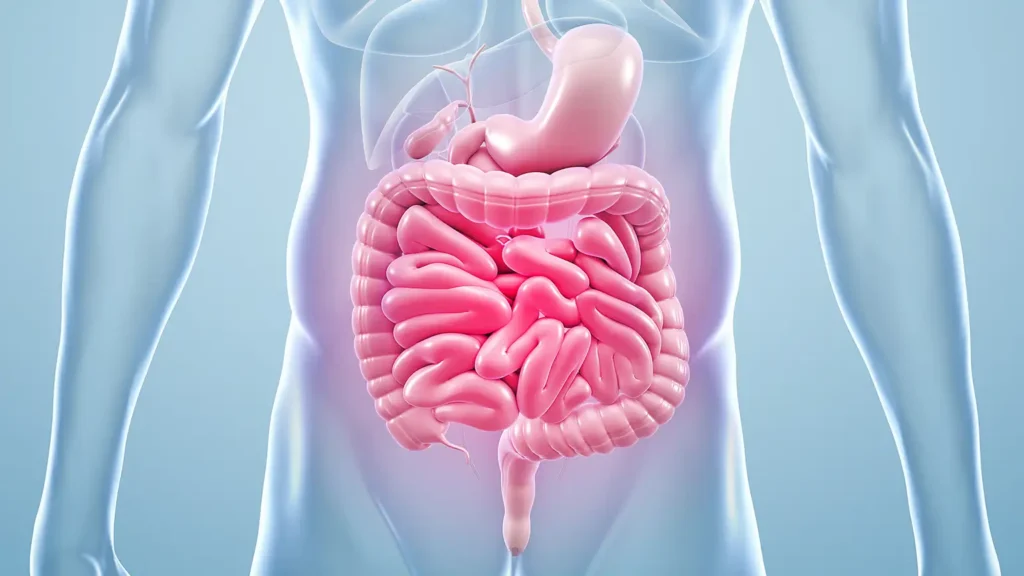
Gut Health: The Foundation of Your Overall Well-Being
When we think of health, most of us immediately focus on the heart, weight, blood pressure, or sugar levels. But there’s another key player in your overall well-being that is often overlooked — your gut. Known as the “second brain,” your gut does much more than just digest food. It impacts your immunity, mental health, skin, metabolism, and even your mood.
Over the last decade, medical research has shown a strong link between gut health and chronic conditions like diabetes, obesity, depression, and autoimmune disorders. In simple words, if your gut is healthy, you’re more likely to feel healthier in every aspect of life.
In this article, we will dive deep into what gut health means, why it is important, signs of poor gut health, and scientifically proven ways to improve it. By the end, you’ll have a clear understanding of why a healthy gut is not just about digestion but about your total well-being.
What is Gut Health?
Gut health refers to the proper functioning and balance of the digestive system, particularly the gut microbiome — a community of trillions of microorganisms (bacteria, fungi, and viruses) living in the intestines.
These microorganisms, often called “good bacteria,” are responsible for:
- Breaking down food into nutrients
- Producing vitamins like B12 and K
- Supporting the immune system
- Regulating mood and mental health via the gut-brain axis
- Protecting against harmful bacteria
When these bacteria are in balance, your body functions smoothly. But when this balance is disturbed (gut dysbiosis), it can trigger several health issues ranging from mild digestive problems to severe chronic diseases.
Why is Gut Health So Important?
The gut plays a central role in almost every system of the body. Here’s how it affects different aspects of health:
1. Digestive Health
A healthy gut ensures proper digestion, nutrient absorption, and smooth bowel movements. Imbalances in gut bacteria often cause bloating, constipation, gas, or diarrhea.
2. Immunity
Did you know that nearly 70% of your immune system resides in your gut? A balanced microbiome helps your body fight off infections and keeps your immune defenses strong.
3. Mental Health
The gut and brain are directly connected via the vagus nerve. This communication is called the gut-brain axis. Poor gut health can affect neurotransmitters like serotonin (the “happy hormone”), leading to anxiety, stress, and depression.
4. Weight & Metabolism
Gut bacteria influence how your body stores fat, regulates blood sugar, and controls hunger hormones. Poor gut health can increase the risk of obesity and metabolic disorders.
5. Skin Health
Conditions like acne, eczema, rosacea, and psoriasis are often linked to poor gut health due to internal inflammation and toxin build-up.
6. Chronic Diseases
Gut imbalance has been linked to serious health conditions such as diabetes, heart disease, autoimmune disorders, and even some cancers.
Signs of Poor Gut Health
Many patients don’t realize that their everyday symptoms are actually related to gut imbalance. Common signs include:
- Persistent bloating, gas, or acidity
- Chronic constipation or diarrhea
- Food intolerances (lactose, gluten, etc.)
- Fatigue and low energy
- Poor concentration or brain fog
- Frequent infections due to weak immunity
- Skin issues like acne, rashes, or dullness
- Unexplained weight gain or loss
- Poor sleep quality or disturbed sleep
If you’re experiencing these symptoms regularly, it’s important to consult a doctor for evaluation. Ignoring gut issues can lead to long-term complications.
Factors That Affect Gut Health
Several lifestyle and medical factors can disrupt the balance of your gut bacteria:
- Poor Diet: High sugar, processed foods, and low-fiber diets harm good bacteria.
- Stress: Chronic stress affects gut motility and bacterial balance.
- Lack of Sleep: Irregular sleep patterns negatively impact gut microbiome.
- Antibiotic Overuse: Frequent use of antibiotics kills not only harmful but also beneficial bacteria.
- Infections: Viral or bacterial infections disturb the natural balance of the gut.
- Ageing: With age, diversity of gut bacteria naturally decreases.
How to Improve Gut Health?
The good news is that gut health can be improved naturally through simple lifestyle and dietary changes.
1. Eat a Gut-Friendly Diet
- Fiber-rich foods: Whole grains, beans, fruits, and vegetables improve digestion.
- Fermented foods: Yogurt, kefir, kimchi, miso, sauerkraut, and pickles provide healthy probiotics.
- Prebiotic foods: Garlic, onions, bananas, asparagus, and oats feed good bacteria.
- Omega-3 rich foods: Fatty fish, walnuts, and flaxseeds help reduce inflammation.
2. Stay Hydrated
Water helps food move smoothly through the intestines and prevents constipation.
3. Manage Stress
Stress directly affects the gut-brain connection. Meditation, yoga, exercise, and hobbies reduce stress levels.
4. Prioritize Sleep
Aim for 7–8 hours of good quality sleep daily. Poor sleep reduces the diversity of gut bacteria.
5. Limit Antibiotics & Painkillers
Take them only when prescribed. Overuse damages gut flora and slows recovery.
6. Take Probiotics & Prebiotics
- Probiotics: Supplements or foods with live beneficial bacteria.
- Prebiotics: Non-digestible fibers that act as food for probiotics.
7. Regular Exercise
Physical activity improves digestion, reduces stress, and supports healthy bacterial diversity.
Medical Support for Gut Health
Sometimes lifestyle changes are not enough. Persistent digestive issues may indicate underlying medical conditions like:
- Irritable Bowel Syndrome (IBS)
- Gastroesophageal Reflux Disease (GERD)
- Gastritis or Peptic Ulcers
- Celiac Disease or Gluten Intolerance
- Inflammatory Bowel Disease (IBD) including Crohn’s disease and Ulcerative Colitis
Doctors may recommend diagnostic tests such as endoscopy, colonoscopy, or stool analysis. Treatment can include medications, dietary modifications, and in some cases, long-term management strategies.
Practical Tips for Everyday Gut Care
Here are some simple yet powerful steps to protect and maintain gut health:
- Eat home-cooked meals instead of processed foods.
- Include seasonal fruits and vegetables daily.
- Reduce sugar, alcohol, and carbonated drinks.
- Practice mindful eating — chew food slowly and avoid overeating.
- Maintain a regular eating and sleeping schedule.
- Consult your doctor if you notice blood in stool, severe abdominal pain, or unexplained weight loss.
Future of Gut Health – What Science Says
The importance of gut health is gaining worldwide attention. Current research is exploring:
- Fecal Microbiota Transplant (FMT): Transplanting healthy bacteria into the gut of patients with severe dysbiosis.
- Personalized Nutrition Plans: Diets tailored to individual microbiome profiles.
- Gut-Brain Therapy: Treatments focusing on the gut-brain axis for depression and anxiety.
- Microbiome-based Medicines: Probiotics designed as targeted therapies for chronic conditions.
This shows that gut health is not just a trend but a major area of medical research with exciting possibilities for the future.
Physical activity, mindful eating, and a diet rich in whole foods play a vital role in maintaining gut health by supporting digestion and microbial balance. When symptoms persist, medical evaluation is essential to identify conditions like IBS, GERD, or inflammatory bowel disease, which may require targeted treatments.
Emerging research into the microbiome, including fecal transplants and personalized nutrition, highlights that gut health is a dynamic and evolving field of science. Just as digestive wellness relies on evidence-based care, managing other health concerns requires informed decisions—such as understanding the safe use of Viagra for ED under medical supervision, where risks and benefits are carefully assessed. Long-term well-being stems from listening to your body and partnering with healthcare professionals.
Conclusion
Your gut health is more than just about digestion — it’s the foundation of your immunity, mood, energy, and long-term health. By making conscious lifestyle choices like eating a balanced diet, managing stress, and getting proper sleep, you can protect your digestive system and overall well-being.
If you have ongoing digestive problems, don’t ignore them. Consult a healthcare professional for the right diagnosis and treatment. Remember, a healthy gut is not just about living longer — it’s about living better.
References



